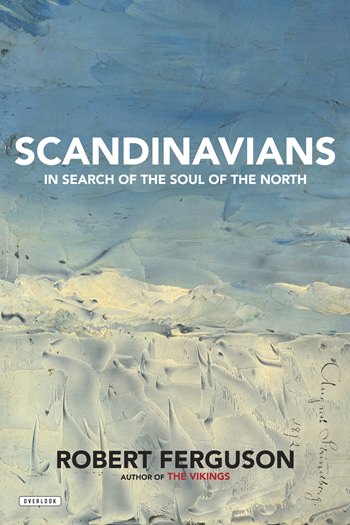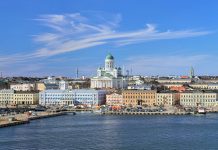
“Scandinavians: In Search of the Soul of the North” (Overlook Press), by Robert Ferguson
Norway, Sweden and Denmark consistently rank at or near the top in global surveys of national contentment, prosperity and well-being. It’s as if peaceful and progressive Scandinavia were a place of relentless cheeriness backed by a lilting soundtrack from ABBA. Even the prisons seem to encourage happiness.
The other side of the coin projects a conflicting image: a dark and cold land beset with melancholy and gloom, a thread that runs from William Shakespeare’s Danish prince Hamlet to Swedish playwright August Strindberg, angst-driven Danish philosopher Soren Kierkegaard, Norwegian painter Edvard Munch of “The Scream” fame and film director Ingmar Bergman. Mix in Stieg Larsson and the string of popular mysteries known as Nordic noir and there’s no shortage of insanity, suicide and general malevolence.
Robert Ferguson, a British-born scholar, brings an outsider’s perspective to the place he fell in love with and made his permanent home when he was in his early 30s. His previous books include a history of the Vikings and biographies of two of his fellow Norwegians: playwright Henrik Ibsen and novelist Knut Hamsun.
Ferguson’s latest book is an idiosyncratic and digressive examination of Scandinavia’s history and culture that combines personal recollections with sometimes rambling conversations with authors, critics and artists, often conducted in cafes over beer and aquavit. He covers roughly 1,500 years, from the Viking era to the present, and sheds light on fascinating episodes unknown to readers not steeped in Scandinavian lore.
Ferguson analyzes key chapters in the region’s history, touching on Sweden’s brief emergence in the 17th century as a great power, the flow of emigrants who brought their culture to the farmland of America’s Midwest and Great Plains, and the vastly different experiences of Norway, Sweden and Denmark during World War II. Ferguson also provides an interlude in his narrative: a rewriting of Ibsen’s “Ghosts,” in which the playwright is confronted with proof of a son that he fathered with a woman he abandoned decades earlier.
“Scandinavians” is a delightful book chock-full of surprises, fascinating anecdotes and insights into the region’s rich history and culture. If the author’s digressions at times seem tiresome and clumsy, they advance his goal of painting a picture of what makes Danes, Swedes and Norwegians tick. (AP)




